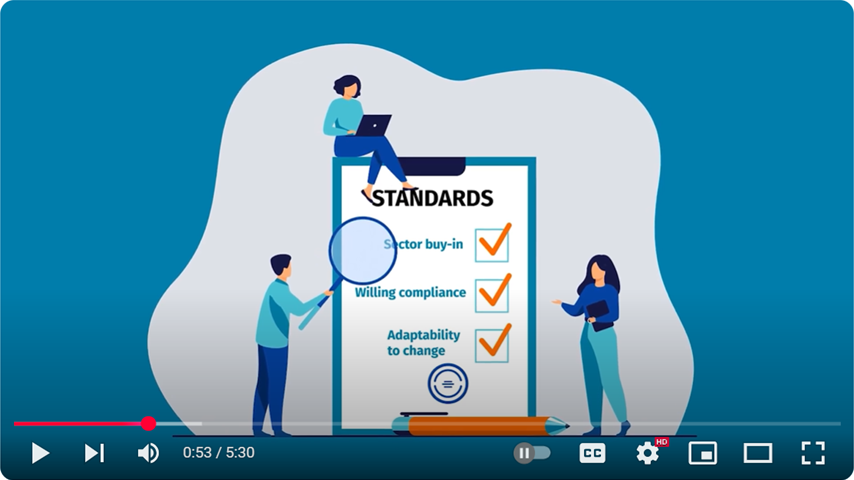In Aotearoa New Zealand, standards play a vital role in shaping safe, efficient, and sustainable practices across industries. Standards New Zealand, the national standards body, and being embedded within the Ministry of Business Innovation & Employment, collaborates closely with government regulators and policy makers to develop or adopt standards that support public policy and regulatory goals.
Of course, while we as members of PASC understand what standards are, we can’t assume those in public policy development fully understand them and see them as tried and tested solutions built by those in the industries most likely to be impacted by policy changes. That’s where targeted education and information helps.
We have created a dedicated space on our website to educating and informing policy makers on the range of standards available to them through Standards New Zealand – here that being New Zealand standards, joint Australian/New Zealand standards and international ISO and IEC standards.
Policy makers are often time poor – we have broken down key messages into a short educational video, link here: Standards for policy and regulation - YouTube

For policymakers, standards can offer a faster, more agile, and cost-effective alternative to traditional legislative processes. They can help achieve policy objectives such as:
• Protection and sustainability: Safeguarding people and the environment while managing risk.
• Incentivised compliance: Broad stakeholder involvement ensures industry buy-in and greater acceptance of policy.
• Efficiency and productivity: Leveraging existing industry knowledge saves time and resources.
• Trade and market access: International standards underpin global trade agreements, reducing barriers and promoting fair competition.
By adopting international standards, New Zealand also helps ensure its industries remain globally compatible and up-to-date, avoiding duplication of effort and fostering innovation. For policy makers using existing standards also saves time seeking subject matter experts and ensures a layer of independence with balances and checks in place to avoid monopolies or unfair commercial interests.
Standards can be cited in outcome-based regulations as acceptable means of compliance. This approach allows regulators to focus on desired outcomes—such as safety or environmental performance—while relying on standards to define how those outcomes can be achieved.
In New Zealand, hundreds of standards are already embedded in regulations across sectors like construction, health, energy, and consumer protection. Even outside formal regulation, standards drive commercial quality and safety improvements.
Some New Zealand specific examples where standards are integrated into regulations include:
NZS 8100 Dairy herd testing – this is written into the corresponding act under our Ministry of Primary Industries, and plays a key role in New Zealand’s dairy industry – a major contributor to our gross domestic product. It provides requirements to recording data that helps farmers sire productive cattle.
NZS 3604 Timber framed buildings – one of many New Zealand standards that are critical to New Zealand’s building and construction industry. New Zealand homes are largely timber-frame constructed to allow for cheaper and readily available building materials as well as seismic flexibility (we are known as the ‘Shaky Isles’ for a reason). NZS 3604 is one of our most used standards and is cited as an acceptable solution in New Zealand’s Building Code enforced by the building regulator.
Minimum Energy Performance Standards – MEPS, created in collaboration with Australia, set minimum energy performance requirements to ensures appliances sold into the joint trans-Tasman economic market are reliable and avoid over consumption of energy through poor performance and inefficient design. MEPS are used by the energy regulator.

Standards are not one size fits all – there are different types of standards for different purposes. We help policy makers and regulators understand this by explaining:
Different regulatory goals require different types of standards:
• Performance-Based Standards: Define system outcomes (e.g., emissions limits, energy efficiency).
• Management System Standards: Ensure consistency, risk management, and consumer trust.
• Product Standards: Specify performance aspects like strength, safety, and durability.
• Personnel Certification Standards: Cover licensing, competency, and professional conduct.
Standards New Zealand also develops voluntary specifications and guidelines that support emerging technologies and cultural integration. Examples include:
• Expanding the electric vehicle network – through freely available (sponsored by the energy regulator) Publicly Available Specifications (PAS) written to guide installation of efficient smart chargers.
• Promoting renewable energy adoption – through new PAS on solar photovoltaics, energy efficient biomass boilers and heatpumps.
• Integrating Māori tikanga and kaupapa in healthcare – through healthcare delivery guidelines sponsored by New Zealand’s public health service Te Whatu Ora.
• Reducing household energy use through smart technology – via sponsored PAS that guide consumers purchasing smart home technology.

As a member of global and regional standards organisations, Standards New Zealand follows internationally recognized development processes. Its consensus-based approach ensures balanced representation, technical accuracy, and independence.
Policy makers may be time poor or have limited subject matter understanding for specific industry goals – here Standards New Zealand provides industry problem solving, consensus building and scoping workshop services and also undertakes standards research and literature reviews to help policy makers determine ranges of options and what solutions could already exist to help them meet their policy objective. Because one of the greatest efficiencies that comes from using standards is avoiding ‘reinventing the wheel’.
Government agencies can work with Standards New Zealand to:
• Adopt international standards suited to local needs.
• Develop bespoke standards for unique national challenges.
• Access expert committees without relying on external contractors.
Standards are powerful tools for achieving policy and regulatory goals. They offer flexibility, credibility, and global compatibility. Whether you're a policymaker, regulator, or industry leader, partnering with Standards New Zealand can help you deliver better outcomes for your sector and society.
To learn more about how we work with policy makers and government, contact Standards New Zealand at www.standards.govt.nz